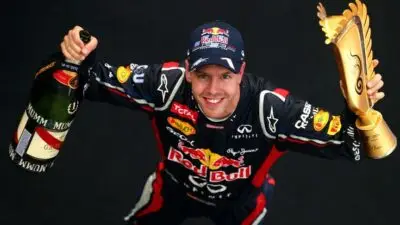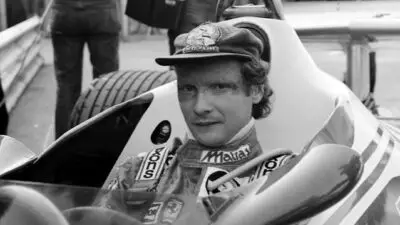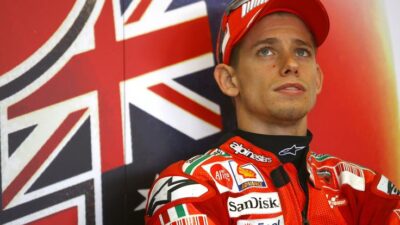Max Verstappen’s journey in Formula 1 is a remarkable story of talent meeting opportunity. Starting as F1’s youngest rookie driver, he quickly proved his worth on the track. His racing career began incredibly early, handling quad bikes at just 2½ years old, showcasing early signs of his natural talent.

By July 2025, Verstappen has secured four consecutive World Championships and over 60 career wins, placing him third on the all-time list behind only legends Lewis Hamilton and Michael Schumacher. This achievement highlights his dominance in the sport and his place among F1’s greatest drivers.
The Dutch champion’s rise from karting prodigy to F1 superstar demonstrates how raw talent, determination, and laser-sharp focus can create an unbeatable force in motorsport. His aggressive driving style and ability to perform under pressure have redefined racing excellence for a new generation of fans.
The Early Years of Max Verstappen

Max Verstappen’s journey to Formula 1 stardom began long before he reached the pinnacle of motorsport. His early life was shaped by racing influences and natural talent that manifested from a remarkably young age.
Family Heritage and Racing Influences
Max Emilian Verstappen was born on September 30, 1997, in Hasselt, Belgium into a family deeply rooted in motorsport. His father, Jos Verstappen, was a former Formula 1 driver who competed for teams like Benetton and Arrows. His mother, Sophie Kumpen, was an accomplished kart racer in her own right.
This racing pedigree created the perfect environment for young Max to develop his skills. His parents separated when he was young, after which Max primarily lived with his father Jos, while his younger sister Victoria stayed with their mother.
Jos Verstappen played a crucial role in Max’s development, serving as both mentor and coach during these formative years. The racing DNA and household environment ensured Max was immersed in motorsport culture from birth.
Karting Career Beginnings
Max’s racing journey began exceptionally early – by age 4, he was already skillfully maneuvering karts. Under his father’s guidance, he quickly demonstrated natural talent that set him apart from his peers.
His karting career accelerated rapidly through the European circuits. By age 7, Max was competing regularly, and within a few years, he began claiming championship titles in various karting categories. His driving style was characterized by:
- Aggressive overtaking
- Exceptional car control
- Mature race craft beyond his years
- Remarkable adaptability to conditions
Max dominated the international karting scene between 2009-2013, winning numerous championships and establishing himself as one of the most promising talents in motorsport. His success in karting created a foundation for his meteoric rise through racing ranks.
Transition Through Junior Motorsports
After mastering karting, Max made an unconventional move by skipping Formula 4 entirely. In 2014, at just 16 years old, he jumped directly into Formula 3 with Van Amersfoort Racing – a decision that raised eyebrows throughout the racing community.
This bold move proved justified when Max won 10 races in his debut Formula 3 season, finishing third overall in the championship. His performances caught the attention of multiple Formula 1 teams, particularly Red Bull Racing.
The speed of his ascent through junior categories was unprecedented. Most drivers spend years progressing through the traditional ladder system, but Max’s exceptional talent accelerated his journey. By August 2014, he had already signed with Toro Rosso (now AlphaTauri) for the 2015 Formula 1 season at just 17 years old.
Breakthrough Into Formula 1

Max Verstappen’s entry into Formula 1 made history as he became the youngest driver ever to compete in the championship. His remarkable journey began with Toro Rosso (now AlphaTauri) before his rapid promotion to Red Bull Racing.
Youngest Rookie Entry
Max Verstappen shattered records when he made his Formula 1 debut at the 2015 Australian Grand Prix at just 17 years and 166 days old. This milestone made him the youngest driver ever to compete in F1.
His arrival was so groundbreaking that the FIA later introduced new age restrictions, requiring drivers to be at least 18 years old. This rule change, sometimes called the “Verstappen Rule,” highlighted how extraordinary his early entry was.
Despite his youth, Verstappen displayed remarkable maturity behind the wheel. His father Jos Verstappen, a former F1 driver himself, had carefully guided his development through karting and junior formulas, preparing him for this historic moment.
Early Achievements in F1
Verstappen’s talent quickly became evident as he scored points in just his second F1 race, finishing 7th at the Malaysian Grand Prix. This achievement made him the youngest points scorer in Formula 1 history.
His aggressive overtaking and fearless racing style immediately caught attention. While some veterans criticized his boldness, others recognized the raw talent and determination that would define his career.
During his rookie season, Verstappen showcased exceptional wet-weather driving abilities. He earned particular praise for his performance at the 2015 Brazilian Grand Prix, where he executed several daring overtakes in challenging conditions.
These early performances convinced Red Bull management that they had discovered a genuine racing prodigy who could potentially reshape the sport.
Joining Toro Rosso
Verstappen’s Formula 1 journey began with Toro Rosso, Red Bull’s junior team designed to develop promising talent. His signing came after a pivotal meeting where both Red Bull and Mercedes had pursued the young driver.
At Toro Rosso, he was partnered with Carlos Sainz Jr., forming one of the most talented young driver pairings in F1 history. Verstappen consistently outperformed expectations in the midfield car, showcasing exceptional race craft and speed.
His ability to extract maximum performance from the Toro Rosso impressed team principal Franz Tost and Red Bull advisor Helmut Marko. By early 2016, it became clear that Verstappen was ready for greater challenges.
After just four races in the 2016 season, Red Bull made the bold decision to promote him to their senior team, replacing Daniil Kvyat in a move that would prove transformative for both Verstappen and Formula 1.
Defining Moments and Milestones

Max Verstappen’s career has been marked by extraordinary achievements that have redefined Formula 1 racing standards. His journey from teenage prodigy to world champion features several breakthrough moments that showcase his exceptional racing talent and competitive spirit.
Record-Breaking Victories
Verstappen became Formula 1’s youngest driver at just 17 years and 166 days when he competed in the 2015 Australian Grand Prix. This immediate entrance into the sport’s highest level signaled his exceptional talent.
By 2024, Verstappen had accumulated an impressive 65 Grand Prix victories, establishing himself as one of the sport’s most successful drivers. His dominance during the 2023 season was particularly remarkable, winning 19 of 22 races—a record for most wins in a single season.
The 2021 Abu Dhabi Grand Prix stands as one of his most controversial yet significant victories, securing his first world championship in dramatic fashion on the final lap. This race epitomized Verstappen’s opportunistic racing style and mental fortitude under extreme pressure.
First Grand Prix Win
Verstappen’s maiden Formula 1 victory came at the 2016 Spanish Grand Prix, making him the youngest race winner in F1 history at 18 years and 228 days. This achievement was particularly impressive as it occurred during his debut race with Red Bull Racing after being promoted from Toro Rosso.
The win demonstrated not just raw speed but exceptional tire management and composure under pressure from Ferrari’s Kimi Räikkönen. Verstappen’s flawless defensive driving throughout the race showcased the racecraft that would become his trademark.
This victory represented a pivotal moment in his career trajectory, validating Red Bull’s decision to promote him and setting the stage for his future success. The win also signaled a changing of the guard in Formula 1, with a new generation challenging established champions.
Podium Finishes and Key Championships
Verstappen has accumulated 112 podium finishes throughout his career, demonstrating remarkable consistency at the highest level. His podium rate—achieving top-three finishes in over 50% of his races—highlights his exceptional performance consistency.
His four consecutive World Drivers’ Championships (2021-2024) place him among Formula 1’s elite drivers. The 2021 title battle against Lewis Hamilton stands as one of the most intense in F1 history, featuring dramatic moments across multiple races.
Key championship moments include:
- The controversial collision at Silverstone in 2021
- His masterful wet-weather victory at the 2021 Belgian Grand Prix
- The dominant 2022 season with 15 wins, cementing his status
- The record-breaking 2023 campaign with unprecedented consistency
Each championship has featured different challenges, showcasing Verstappen’s adaptability to changing regulations and competitive landscapes.
Championship Era and Dominance

Max Verstappen’s journey from prodigy to champion marks one of Formula 1’s most impressive rises to dominance. His combination of raw talent, aggressive racing style, and technical expertise has fundamentally changed the competitive landscape of F1.
World Title Triumphs
Max Verstappen claimed his first Formula 1 World Championship in 2021 in dramatic fashion. The title was decided in the final race at Abu Dhabi with a controversial last-lap overtake against Lewis Hamilton. This breakthrough moment came after years of showing promise at Red Bull Racing.
Following his initial success, Verstappen built an incredible championship streak. He secured back-to-back titles in 2022 and 2023, demonstrating his consistency and skill across varying circuits and conditions.
By July 2025, Verstappen had cemented his legacy as a four-time world champion, achieving this milestone at just 27 years old. His championship success has placed him among the elite drivers in F1 history.
Rivalries and Key Contenders
Verstappen’s championship era has been defined by several significant rivalries. His battle with Lewis Hamilton in 2021 stands as one of F1’s most intense competitions, with the two drivers pushing each other to the limit throughout the season.
Charles Leclerc emerged as another key challenger, particularly when Ferrari found competitive form. Their history dating back to karting days added extra intensity to their on-track battles.
Team dynamics also played a role in Verstappen’s dominance, with significant power struggles within Red Bull occasionally threatening to disrupt his momentum. Despite these internal challenges, Verstappen maintained his focus on track.
Sergio Perez, as his teammate, provided both support and occasional competition, though Verstappen consistently demonstrated his superiority within the team.
Dominant Seasons Performance
Verstappen’s domination reached unprecedented levels during this era. The 2022 season saw him shatter multiple records, including most wins in a single season as he took advantage of Red Bull’s technical superiority.
His consistency has been remarkable. Verstappen hasn’t finished outside the top 10 since 2016, demonstrating exceptional reliability alongside his speed. This consistency formed the backbone of his championship runs.
Key statistics highlight his dominance:
- Most wins in a season: Broken multiple times during his championship era
- Highest points total: Set new benchmarks for season-long performance
- Podium rate: Maintained over 80% podium finishes during peak seasons
- Pole positions: Regularly outqualified the entire field by significant margins
Technical mastery of the ground-effect era regulations gave Verstappen and Red Bull a significant advantage that competitors struggled to match.
Driving Style and On-Track Reputation

Max Verstappen’s approach to racing combines raw aggression with remarkable adaptability, creating a distinctive style that has both impressed and divided the Formula 1 community. His techniques on track have evolved significantly since his debut as a teenager.
Aggressive Racecraft
Verstappen entered Formula 1 at just 17 years old with a fearless driving approach that immediately set him apart. His style is characterized by bold overtakes and late braking, often pushing the limits of what seemed possible.
The Dutchman’s racing philosophy prioritizes never yielding positions, creating a reputation for being ruthless in wheel-to-wheel combat. This approach has led to several controversial moments throughout his career.
Critics have labeled his tactics as overly aggressive, while supporters view them as the mark of an elite competitor who maximizes every opportunity. His uncompromising aggression has both thrilled fans and polarized experts in equal measure.
The hard-charging style has become his trademark, influencing a new generation of racers and changing the DNA of Formula 1 competition.
Adaptability and Strengths
Contrary to popular belief, Verstappen isn’t simply aggressive – he’s remarkably adaptable. Rather than sticking to one approach, he refines his style based on the car and track conditions, showing exceptional versatility.
Technical analysis reveals Verstappen as a smooth oversteer driver with extraordinary sensitivity to grip limits. He carries tremendous speed through corner entry and mid-corner phases, extracting maximum performance from his typically oversteering Red Bull.
His preference for a direct, responsive front end has challenged teammates to adapt to his setup preferences. This distinctive car balance requirement has contributed to the struggles of several talented drivers paired with him at Red Bull.
Verstappen’s karting background heavily influenced his F1 techniques, with his early racing experiences shaping his championship-winning approach.
Fan and Peer Recognition
Verstappen’s driving style has earned him a passionate global fanbase who appreciate his no-compromise approach to racing. His willingness to push boundaries resonates with viewers seeking excitement in Formula 1.
Fellow drivers have mixed opinions. Some praise his exceptional car control and ability to extract maximum performance in all conditions. Others have criticized specific racing incidents they deemed too aggressive.
Former teammate Alex Albon provided insight by explaining how Verstappen’s unique approach creates tension on track. This tension has become part of what makes Verstappen such a compelling figure in modern F1.
Many experts now acknowledge that his evolution as a driver places him on track to potentially become one of the greatest F1 drivers in history. His four world championships have validated his approach in the eyes of many critics.
Legacy and Future Prospects

Max Verstappen has solidified his place in Formula 1 history through exceptional talent and remarkable achievements. His influence extends beyond personal success to transforming Dutch motorsport and challenging the status quo of F1 racing.
Impact on Dutch Motorsport
Before Verstappen, the Netherlands had minimal presence in Formula 1. His success has triggered unprecedented interest in motorsport throughout the country. TV viewership numbers for F1 races in the Netherlands have skyrocketed since his debut.
The revival of the Dutch Grand Prix at Zandvoort in 2021 came as a direct result of his popularity. The “Orange Army” of fans now travels to races worldwide, creating a distinctive atmosphere at circuits.
His success has inspired a new generation of young Dutch drivers. Karting enrollments in the Netherlands have increased by over 40% since 2015, establishing a potential pipeline of future Dutch F1 talent.
Place Among F1 Greats
With multiple world championships already secured, Verstappen has entered the elite circle of F1 champions. His aggressive yet calculated driving approach has redefined modern racing standards.
Key Verstappen achievements:
- Four world championships by age 27
- 63+ Grand Prix victories
- 112+ podium finishes
- Youngest F1 driver and race winner in history
His battle with Lewis Hamilton in 2021 is widely considered one of the greatest championship duels in F1 history. Racing experts frequently compare his raw speed and racecraft to legends like Ayrton Senna.
Unlike many champions, Verstappen’s legacy includes changing how drivers approach wheel-to-wheel combat in modern F1.
Looking Ahead: Career Trajectory
At just 27, Verstappen stands firmly in his prime with potentially another decade in Formula 1. His current contract with Red Bull runs until 2028, though recent management changes have sparked speculation about his future.
Mercedes has shown interest in signing Verstappen, though he has recently indicated his intention to remain at Red Bull. His relationship with Red Bull has been pivotal since a crucial early career meeting that steered him away from Mercedes.
Statistically, Verstappen could challenge all-time F1 records held by Lewis Hamilton and Michael Schumacher if he maintains his current trajectory. His adaptability to changing regulations will likely determine whether he can extend his dominance through upcoming F1 rule changes.



